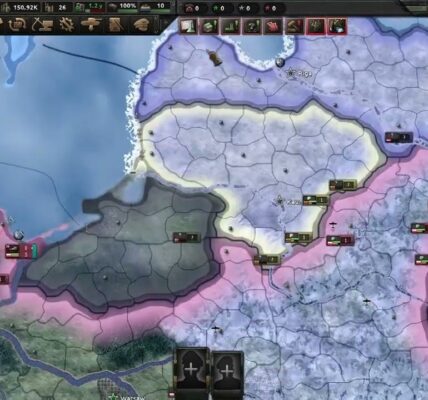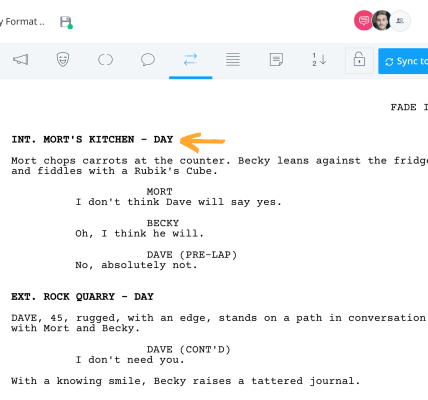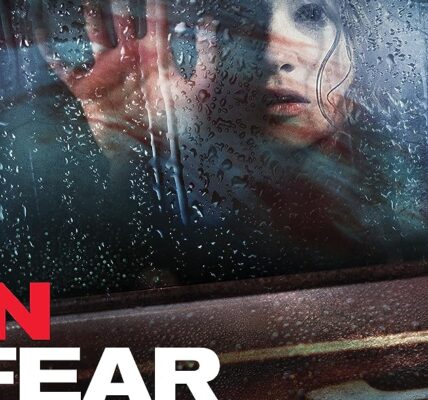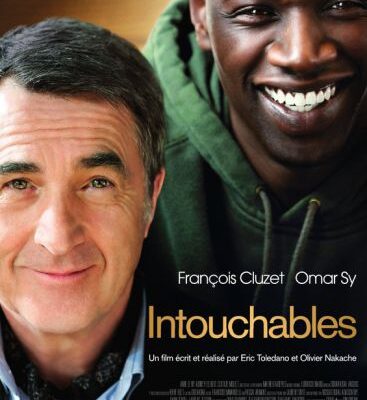Actress Josephine Decker pulls off a highly original twin pack in this year’s programme: her directorial debut Butter on the Latch about the uncanny experiences of two friends in a Californian forest screens alongside her second feature Thou Wast Mild and Lovely, a dark love story set on a farm in rural Kentucky that ends in catastrophe.
The German production Los Ángeles by Damian John Harper is set in a village in Mexico. This powerful debut tells the story of a young man who dreams of a better life in Los Angeles. Yet his goal recedes further and further into the distance after he runs into trouble with the local gangsters whose support he was counting on, deciding instead to revolt against the system of violence everyone else takes for granted.
Well-known director Corneliu Porumboiu draws on a strikingly original form for his film Al doilea joc(The Second Game): together with his father, who worked as a football referee during the Ceaușescu regime, he provides a commentary for the grainy VHS footage of a match between top teams Dinamo and Steaua. As the game threatens to shudder to a halt in the driving snow, the viewer is left wondering how an impartial referee was able to survive in a one-party state.
Works by primarily young filmmakers from Eastern Europe make up one geographical focus of this year’s programme. Estonian filmmaker Veiko Õunpuu’s tragicomic feature Free Range – Ballaad maailma heakskiitmisest follows a young man torn between his dream of living for art and the demands of everyday life as he strives to achieve a state of weightlessness.
An old man bearing the scars of a life of factory work lies at the heart of the documentary-like Polish feature Huba (Parasite) by Anka and Wilhelm Sasnal. His daughter moves in with him, alone except for her small baby. A story of being thrown back on naked existence, of cramped quarters, the unfamiliar, intimacy, closeness and bodies – at the beginning of life, at its end and somewhere in between.
Chilla (40 Days of Silence) by Saodat Ismailova is a further directorial debut. The young Uzbek director tells the story of Bibicha, who takes refuge in her grandmother’s house to sit out the traditional vow of silence. Moving between the barren landscape outside and the bright colours within, the film traces her rocky path toward self-determination.
Among the themes to be found in the films of the 2014 Forum are working environments and aggravated class relations in economically unstable times. Filmmakers from all over the world draw on a broad spectrum of different strategies to grapple with how the individual is affected by such worsening affairs.
Athanasios Karanikolas’ feature film Sto spiti (At Home) thus employs elegant visual compositions to tell the story of a Georgian housekeeper in a sunny villa in Greece. After being suddenly diagnosed with a serious illness, she is quickly cast by the wayside once her employer’s business dealings begin to falter.
The Japanese feature debut Forma by Ayumi Sakamoto revolves around two former school friends who have since gone their separate ways. Having built a successful career, Ayako offers Yukari a position in her company, who has thus far only had various menial jobs. The two friends now play the roles of boss and subordinate, as their differences come ever closer to the fore.
Offbeat American feature She’s Lost Control by German director Anja Marquardt is another directorial debut, centring upon a therapist who tries to teach her clients what they fear most: physical contact with other people. Her relationship with a new patient ruthlessly calls into question the boundary between professional and private intimacy.
Several films in this year’s programme explore the absurdities of the cultural establishment, often in duly comedic form. In Max Linz’ feature film debut Ich will mich nicht künstlich aufregen (Asta Upset), young Berlin curator Asta Nielsen draws on all the style, charm and theory at her disposal to realise her new project, yet runs into difficulties after giving a self-critical interview. The film takes an amusing look at contemporary forms of discourse and media ranging from the soap opera to the video installation.
In L’enlèvement de Michel Houellebecq (The Kidnapping of Michel Houellebecq), French director Guillaume Nicloux has brawny gangsters kidnap controversial writer Michel Houellebecq, where he is held captive for days in a house outside Paris in the hope a ransom will be paid. Yet rather than resisting, Houellebecq seems oddly content with this enforced holiday from his strenuous life as a celebrity, quickly making friends with his guileless kidnappers.
The screening of Ken Jacobs’ The Guests promises to be a truly special event. The “expanded cinema” doyen digitally enhances a one-minute film from the early days of cinema into what is presumably the first ever black-and-white silent film in 3D. For 70 minutes, we watch the congregation mounting the steps of a Parisian church as our attention is drawn to the smallest of details.
This year’s Special Screenings will be announced in a separate press release.
The films of the 44th Forum:
The Airstrip by Heinz Emigholz, Germany – WP
Al doilea joc (The Second Game) by Corneliu Porumboiu, Romania – WP
Le beau danger by René Frölke, Germany / Italy – WP
Butter on the Latch by Josephine Decker, USA – WP
Casse (Scrap Yard) by Nadège Trebal, France – IP
Castanha by Davi Pretto, Brasil – WP
Cheol-ae-kum (A Dream of Iron) by Kelvin Kyung Kun Park, Republic of Korea / USA – WP
Chilla (40 Days of Silence) by Saodat Ismailova, Uzbekistan / Tajikistan / Netherlands / Germany / France – WP
The Darkside by Warwick Thornton, Australia – IP
L’enlèvement de Michel Houellebecq (The Kidnapping of Michel Houellebecq) by Guillaume Nicloux, France – WP
Forma by Ayumi Sakamoto, Japan – IP
Free Range – Ballaad maailma heakskiitmisest (Free Range) by Veiko Õunpuu, Estonia – IP
Das große Museum (The Great Museum) by Johannes Holzhausen, Austria – WP
The Guests by Ken Jacobs, USA – WP
Gui ri zi (Shadow Days) by Zhao Dayong, China / Hong Kong – WP
Huba (Parasite) by Anka Sasnal, Wilhelm Sasnal, Poland / United Kingdom – WP
Ich will mich nicht künstlich aufregen (Asta Upset) by Max Linz, Germany – WP
Iranien (Iranian) by Mehran Tamadon, France / Switzerland – WP
Kumiko, the Treasure Hunter by David Zellner, USA – IP
Kumun tadı (Seaburners) by Melisa Önel, Turkey – WP
Lajwanti (The Honour Keeper) by Pushpendra Singh, India – WP
Los Ángeles by Damian John Harper, Germany/Mexico – WP
La marche à suivre (Guidelines) by Jean-François Caissy, Canada – WP
N – The Madness of Reason by Peter Krüger, Belgium / Germany / Netherlands – WP
Nagima by Zhanna Issabayeva, Kazakhstan
Non-fiction Diary by Jung Yoon-suk, Republic of Korea – IP
Pădurea e ca muntele, vezi? (The Forest is Like the Mountains) by Christiane Schmidt, Didier Guillian, Romania / Germany – WP
Que ta joie demeure (Joy of Man’s Desiring) by Denis Côté, Canada – WP
Shemtkhveviti paemnebi (Blind Dates) by Levan Koguashvili, Georgia
She’s Lost Control by Anja Marquardt, USA – WP
Ship bun (10 Minutes) by Lee Yong-seung, Republic of Korea – IP
Souvenir by André Siegers, Germany – WP
Sto spiti (At Home) by Athanasios Karanikolas, Greece / Germany – WP
Thou Wast Mild and Lovely by Josephine Decker, USA – WP
To Singapore, With Love by Tan Pin Pin, Singapore
Töchter (Daughters) by Maria Speth, Germany – WP
Top Girl oder la déformation professionnelle (Top Girl or la déformation professionnelle) by Tatjana Turanskyj, Germany – WP
Und in der Mitte, da sind wir (And There We are, in the Middle) by Sebastian Brameshuber, Austria – WP
Zamatoví teroristi (Velvet Terrorists) by Ivan Ostrochovský, Pavol Pekarčík, Peter Kerekes, Slovak Republic / Czech Republic / Croatia – IP
(WP = World premiere, IP = International premiere)












